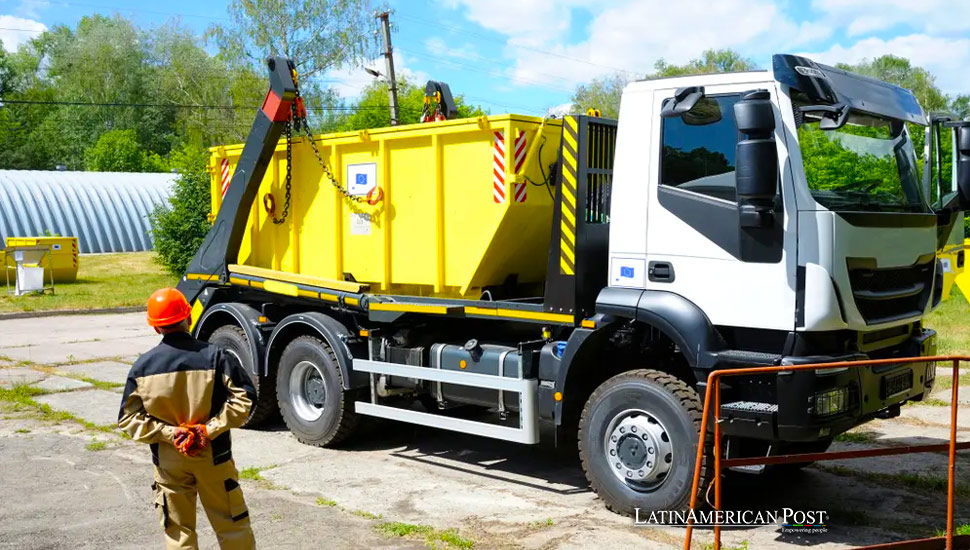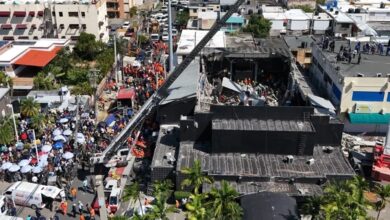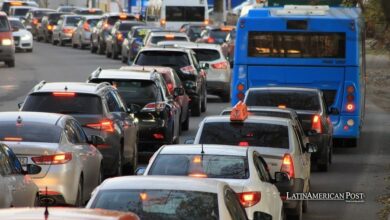Strengthening Radiological Transport Safety in the Dominican Republic

The Dominican Republic hosts a pivotal regional symposium on safely transporting radioactive materials, drawing experts from 12 countries to discuss safety, regulatory frameworks, and best practices in radiological protection.
In a significant step towards enhancing regional safety standards, the Dominican Republic has become the focal point for discussions on the safe transport of radioactive goods. The country is hosting a regional symposium, bringing together experts from twelve countries to exchange knowledge and coordinate efforts on this critical issue. This gathering underscores the growing importance of establishing robust regulatory frameworks and operational guidelines in transporting radiological materials.
The “Regional Symposium on Physical Security of Transportation of Radioactive Sources,” which kicked off this Monday, is a collaboration between the Dominican Republic’s National Energy Commission (CNE) and several U.S. agencies, including the Department of Energy, the National Nuclear Security Administration (NNSA), the Oak Ridge National Laboratory, and the Office of Radiological Security (ORS). The event is a testament to the increasing focus on ensuring that radioactive materials used in medical, industrial, and research applications are transported securely and responsibly.
Context and Importance
The transport of radioactive materials is a logistical challenge that involves strict adherence to international safety standards to prevent accidents and ensure public and environmental safety. With the participation of countries such as the Bahamas, Costa Rica, El Salvador, Guatemala, Guyana, Honduras, Jamaica, Mexico, Panama, Trinidad and Tobago, and the United States, the symposium aims to foster a collaborative approach to tackle the associated risks.
The sessions over the two days are rich with group discussions, debates, and presentations focused on critical areas such as the formulation of regulations, the crucial role of inspections, and the strategies for effective communication and coordination with international partners. These discussions are vital as they address the complexity and scale of challenges faced when transporting materials that, if mishandled, could pose significant health and safety risks.
Technological and Regulatory Advances in the Dominican Republic
Under Narkiss Almonte’s leadership, the CNE has been pivotal in steering the Dominican Republic toward becoming a regional leader in radiological protection. The country boasts cutting-edge technology in radiological equipment and has made notable strides in updating its radiological protection standards in 2023. These updates have streamlined application requirements and aligned domestic regulations with international standards, enhancing the safety framework for handling radioactive materials.
One of the symposium’s highlights is the Dominican Republic’s approach to regulatory vision sharing and strengthening cooperation among participating nations. Such international dialogues are crucial for harmonizing standards across borders and improving safety protocols for transporting radioactive substances.
Capacity Building and Licensing
The CNE has also focused on increasing the training of technical and regulatory personnel, which is crucial for safely handling radioactive materials. This capacity-building initiative is reflected in the significant growth in authorizations for handling radioactive substances. From 2016 to February 2024, 3,677 Personal Operation Licenses (LPO) and 1,796 Institutional Operation Licenses/Registration Entries (LIO/IR) were granted, indicating a robust regulatory environment.
Latin American Context
The initiative by the Dominican Republic is part of a broader trend in Latin America toward enhancing the safety and security of radioactive materials. Across the region, countries are recognizing the importance of upholding stringent international safety standards to protect public health and the environment. This regional symposium serves as a platform for discussion and a catalyst for broader regional cooperation in Latin America.
The efforts to secure the transport of radioactive materials in the Dominican Republic and beyond are integral to the global goal of ensuring that such materials are used safely and beneficially, particularly in sectors like healthcare and industry that rely heavily on radiological sources.
Future Directions
As the symposium concludes, the focus turns to implementing the insights and strategies discussed during the event. The collaborative framework established here is expected to lead to more robust regional policies and a stronger, more unified response to the challenges of transporting radioactive materials.
Also read: Dominican Republic’s Gender Parity: Progress and Challenges RevealedAlso read
The Dominican Republic’s leadership in hosting this symposium highlights its commitment to radiological safety and positions it as a key player in promoting regional and global cooperation in this critical field. As countries continue to navigate the complexities of radioactive material transport, the foundations laid by such international gatherings will be vital in shaping a safer, more secure world.





